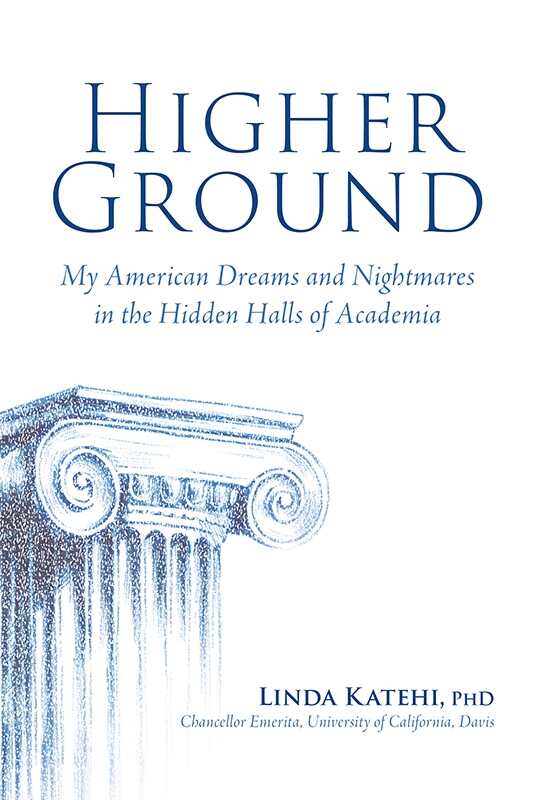Higher Ground
My American Dreams and Nightmares in the Hidden Halls of Academia
Promoting personal resilience and naming grand achievements, Higher Ground is the inspiring memoir of a celebrated, beleaguered academic.
Former University of California, Davis, chancellor Linda Katehi’s evocative memoir Higher Ground is about the struggles of entering STEM education as a woman.
Katehi grew up in Greece in the postwar period. Later, she became a respected leader in the field of engineering. But even though Katehi rose to prominence in academic circles, her tenure at UC Davis was troubled. She was entangled in controversies and dealt with media exploitation. She persevered through such challenges, determined to face adversity with strength.
Katehi’s story is a layered one. It delivers both powerful messages about persistence and prejudice and poignant reflections on the passage of time and the importance of memory. Early in the book, Greece is described in beautiful, detailed terms, evoking the land’s relationship with the sea. And Katehi writes about falling in love with her husband in emotive language, as when she’s describing the warmth and comfort of his hand holding hers.
But beyond its nostalgia and youthful memories, the book does an able job of capturing the particular difficulties that Katehi faced as a woman when it came to starting a career in a field that had long been dominated by men. She delivers examples of biases against women professors that hindered their careers and led to attacks on their integrity, as with the example of a friend who was sabotaged by her administration. Each such example foreshadows the gut-wrenching attacks that later came against Katehi herself. As the book continues, its narration becomes tinged with trepidation.
Still, the book loses some ground because of its coverage of multiple topics connected to academia. For example, while its scenes conveying events like an ominous phone call from the press or the growing menace of forces against Katehi’s administration possess palpable tension, others (as with those that editorialize on budget cuts, misplaced priorities in higher education, and the impacts of social media and protests on the quality of discourse) dilute the book on the whole. While Katehi imparts a clear sense that it is unjust that educators have to deal with violent threats, the book’s sense of frustration overtakes it. By the end, its early idealism has been replaced by general weariness.
Written by a woman was challenged by prejudices in academia but often triumphed over them, the inspiring memoir Higher Ground celebrates personal resilience and grand achievements.
Reviewed by
Matt Benzing
Disclosure: This article is not an endorsement, but a review. The publisher of this book provided free copies of the book and paid a small fee to have their book reviewed by a professional reviewer. Foreword Reviews and Clarion Reviews make no guarantee that the publisher will receive a positive review. Foreword Magazine, Inc. is disclosing this in accordance with the Federal Trade Commission’s 16 CFR, Part 255.

